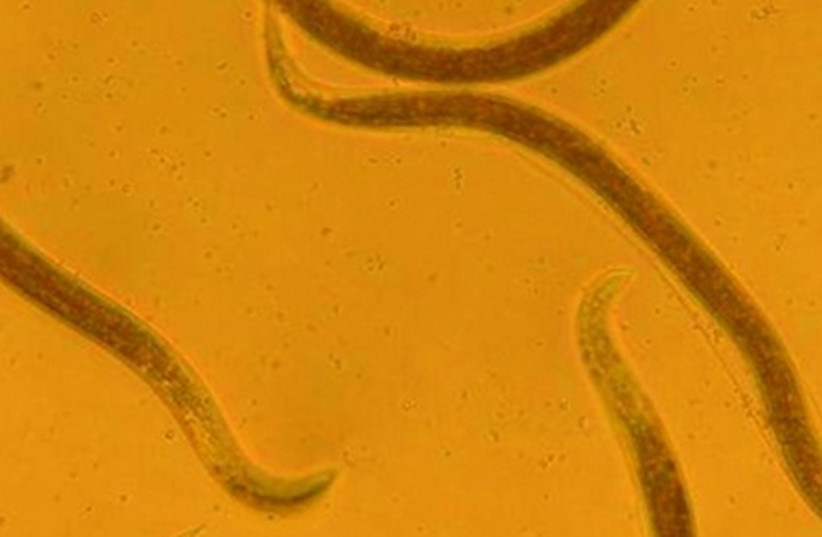American actor Jeff Daniels has had a long and storied career on television, cinema and theater, and has been lauded with many awards and accolades for his iconic performances.
But now he has achieved a feat that no other actor has ever been fortunate enough to claim before: Having a parasitic tarantula-killing worm named after him.
These small organisms in question, now dubbed Tarantobelus jeffdanielsi, were described and named in a new study published in the peer-reviewed academic periodical the Journal of Parasitology.
These worms are a type of nematode, also known as roundworms, of which there are over 25,000 different species and which are among the most abundant and numerous types of animals that exist on Earth.
Can nematodes infect spiders?

Apparently, yes.
A prior study in Europe saw nematodes on tarantulas before, but they only studied the worms themselves, not the worms while they were in the spider.
But in September 2019, a new attempt was made to study the worms after a tarantula breeder reached out to University of California, Riverside parasitologist Adler Dillman to identify a strange infection that had wormed its way into their tarantulas.
These arachnids were spotted having a strange white mass around their mouths – something Dillman immediately recognized as nematodes.
But the infection didn't stop there. The tarantulas infested with jeffdanielsi nematodes would stop eating, walk around on tiptoe and the limbs controlling their fangs lost functionality.
This infection is absolutely fatal to the poor infected tarantulas, dooming them to die of starvation – though it will take a while, because tarantulas don't need to eat very often.
What else do we know about the Jeff Daniels parasites?
As Dillman and his team discovered, these worms are largely hermaphrodites, self-fertilizing to produce their own sperm and eggs in order to reproduce. It is estimated that on average, a single one of these hermaphroditic worms can have 160 children over the course of their lifespan – though in laboratory conditions, that lifespan is just 11 days. How long they can live inside the tarantulas, though, is unclear.
Why do the nematodes inhabit tarantulas?
That's a bit unclear. This is mysterious because they can't be found throughout the bodies of the spiders – they only inhabit the mouth area. They cause no external damage otherwise, and none were found in the stomach.
As such, it isn't exactly clear if these worms are eating the tarantula itself, as it is possible they are only eating the bacteria that also live in the spider. There is evidence to support this, too, as in the laboratory, they ate e. coli bacteria.
But there is another mystery about them: If they only infect the mouth area, how do the jeffdanielsi change the tarantula's behavior, paralyzing them and stopping them from eating?
That remains unknown.
Also unknown is exactly how common this infection is. It is very rare that a tarantula parasite is actually identified, but the field itself is also lacking in more studies on the subject.
The fact that nematodes were able to infect them is not a surprise though.
“Nematodes have been around for hundreds of millions of years. They’ve evolved to infect every kind of host on the planet including humans,” Dillman said in a statement. “Any animal you know of on planet Earth, there’s a nematode that can infect it.”

Why were the nematodes named after Jeff Daniels?
The actor has participated in a number of performances over the years, such as Pleasantville, Dumb and Dumberer, Looper, The Looming Tower and The Newsroom, just to name a few.
But also included among his long filmography is the 1990 horror comedy Arachnophobia, a film about a town beset by an invasion of spiders. Jeff Daniels, playing the role of Dr. Ross Jennings, is the stalwart protagonist who fights these vicious eight-legged invaders.
In other words, he was a spider-killer, just like the nematodes that now bear his name.
And for his part, Daniels took the news happily.
“When I first heard a new species of nematode had been named after me, I thought, ‘Why? Is there a resemblance?’ Daniels joked.
“Honestly, I was honored by their homage to me and Arachnophobia. Made me smile. And of course, in Hollywood, you haven’t really made it until you’ve been recognized by those in the field of parasitology.”
